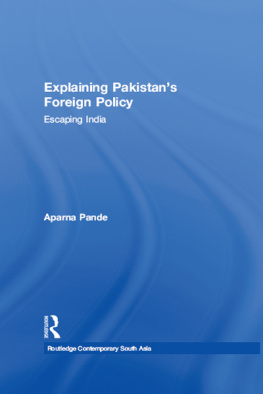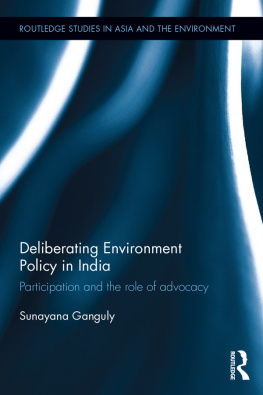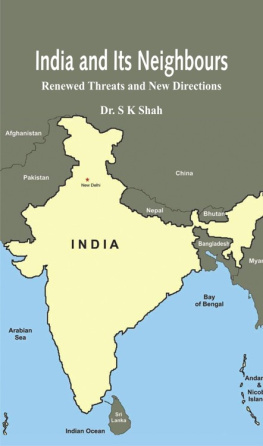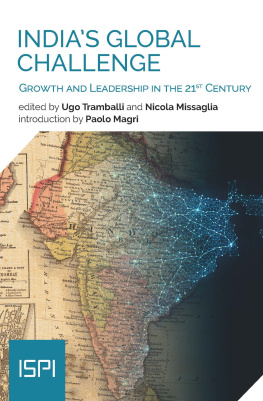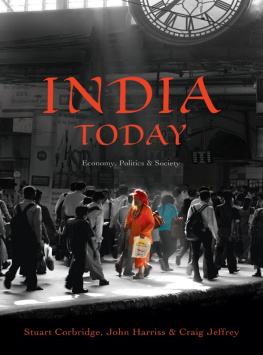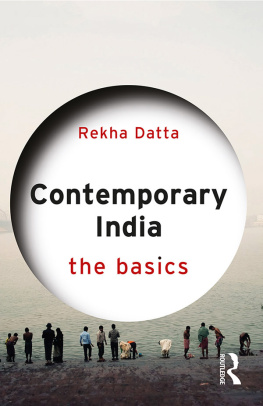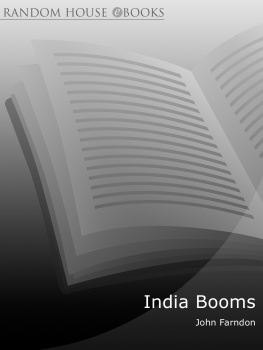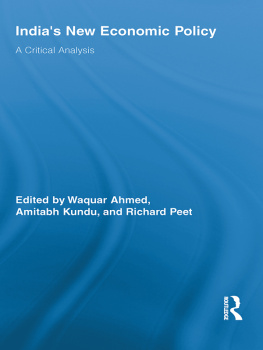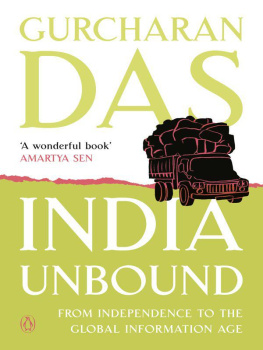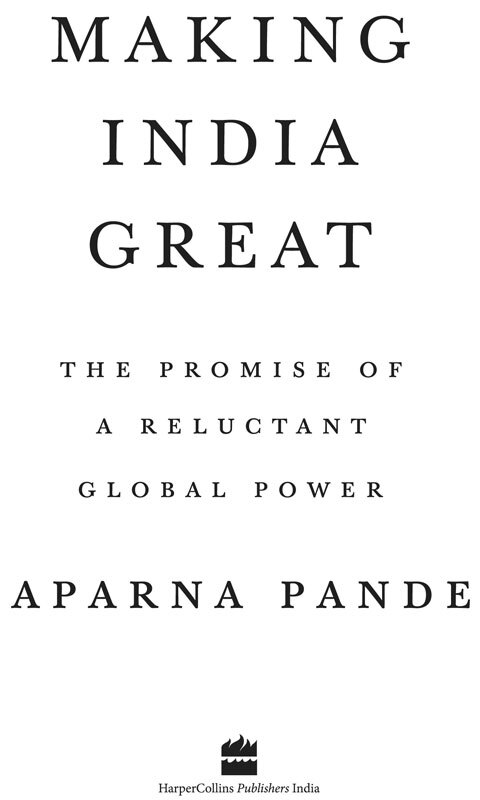To my teacher and mentor, Ambassador Husain Haqqani, who, after my father, has been my greatest source of support and inspiration. His faith and guidance have been invaluable.
Introduction
Potential and Promise
Let us remember first that India is not a little island, nor a continent sparsely inhabited by savages, but a vast territory containing 320,000,000 souls three times as many as in the United States, more than in North and South America combined, more than in all Europe, west of Russia combined; all in all, one-fifth of the worlds population.
HISTORIAN WILL DURANT makes this argument in his book, The Case for India , written after his visit to the subcontinent in 1930. Since then, two new countries have been carved out of what was then India, with a combined population of 1,800,000,000. The country that carries the historic name and traditions of ancient India has a population of 1.4 billion and is still as vast a country as it was in Durants time. Every sixth person in the world today is Indian.
The promise of India, therefore, is old: it lies in the centuries-old culture, the possibilities of the large and youthful population, the size and potential of the economy, and the capability and capacity of its military. The Indian national movement, which initiated the end of the colonial era worldwide, was built on Indias great prospects. The sense of Indian exceptionalism that the countrys founding fathers spoke about and that the average Indian believes in, comes from the seeming inevitability of its rise to great power status. For Indians, Indias greatness is a given. The only question is when and how it will manifest itself on the world stage.
As one of the only two countries in the world with a population of over 1 billion, half of it under the age of twenty-five, India has a huge labour force, a massive recruitment pool for soldiers and a formidable consumer market. Its ability to build and consistently maintain a democratic political system has made it a natural partner for Western democracies.
India will be the most populous country by 2024 and the worlds third largest economy by 2028. It already has the fourth largest military and one of the largest English-speaking populations in the world. India ranks fourth in the global rankings of countries that produce the most doctoral students, with over 24,000 PhDs annually.
It is, therefore, natural that the prospect of Indias rise attracts global attention. China has quadrupled its GDP in the last two decades. If India can manage to do the same, it is the natural competitor for China in what is dubbed as the Asian century that lies ahead. But Indias march towards great power status is not likely to be as smooth as it sounds. Much as Indians want their country to be a global leader, there is also hesitance in building and exercising hard power. It is almost as if India wants to be a great power because it is its right to be one. Methodical development of the wherewithal of global power has thus far not proved to be its strong suit.
As early as February 1947, the United States saw a united India as making its rightful and honourable contribution to the maintenance of international peace and prosperity.
When the former Connecticut governor, Chester Bowles, asked President Harry Truman in 1951 to appoint him US ambassador to India, the president was surprised why a political figure of his stature would want to serve in that poor country. Bowles argued that the future of the world would rest on the competition between democratic India on the one hand and communist China on the other.
In 1957, Senator John F. Kennedy who, as president, sent Bowles back to India for a second stint as ambassador in 1961 asserted that India represented the free worlds strongest bulwark to the seductive appeal of Peking and Moscow. Indias appeal remained alive despite losing a border war with China in 1962 and the slow growth of its economy during the 1960s and 1970s.
At the end of the Cold War, Indias economic liberalization, its sustained democracy, its embrace of technology especially information technology and its open, plural and diverse society, once again led to the resurrection of the promise of India. Strobe Talbott, who as deputy secretary of state under President Clinton invested heavily in building the USIndia relationship, declared, India with its resilient democracy, its vibrant high-tech sector, its liberal reforms that had begun to revitalize a statist and sclerotic economy, and its huge consumer market as a natural beneficiary of globalization and therefore potentially a much more important partner for the United States.
Indians have also believed in the promise of India. Five thousand years of continuous civilization has bred a sense of Indian exceptionalism. Others might judge the modern state by its economic indicators, its low ranking on the human development index, or its apparent political and social chaos. For Indians, however, the subcontinent represents one civilization and one indivisible historical entity, whose past achievements are a source of immense pride, justification for a sense of superiority and the expectation of an equally great future.
India is seen by some as suffering from political, social and cultural lethargy, bred by the baggage of its long history. In the words of Nobel laureate, Sir Vidiadhar Surajprasad (V.S.) Naipaul (a Trinidadian of Indian descent), the country is plagued with the crisis of what he refers to as a wounded old civilization; while Indians are aware of its inadequacies, their culture seems to lack the intellectual means to move ahead.
Unlike much of the Muslim Middle East that has been reluctant to embrace modernity, India has embraced modernity, but only partially. Even as the promise of a rising India keeps resurfacing, it is held back by inadequate modernization. Thus, Indias history and its modern parts breed optimism about its future. But the same history and the parts that are not modern hold the country back.
Indias promise cannot be realized without acknowledging its failings. As one of the two oldest continuous civilizations in the world, India could certainly be a global power. But to get there, it would have to deal with its handicaps. Indians living abroad, in particular, tend to gloss over widespread superstition, caste and ethnic prejudice, as well as religious antagonisms that impede Indias progress. They speak often of the India they want, not the India that is.
One of its foremost encumbrances is its relationship with the past. India is an ancient land, unified by geography and tradition. Many Indian languages use the same word for yesterday and tomorrow, reflecting a belief in life as an eternal cycle. There are those, like Booker Prizewinner Salman Rushdie, who argue, No people whose word for yesterday is the same as their word for tomorrow can be said to have a firm grip on time.
In the view of such critics, Indians spend far greater time dwelling on their past than they do on planning for their future. They might not be wrong. Every now and then, Indian cities shut down amidst protests over the perceived wrong portrayal of a historical figure in a book or film. Instead of conducting such arguments in classrooms or the media, Indians seem prepared to waste an entire days, or a few days productivity, resulting in loss of earnings. The argument over honour of a deity or hero, who may or may not have existed centuries ago, matters more than the substantive matters relating to the here and now. More often than not, this is used to assert a new identity and drive a new political argument.



